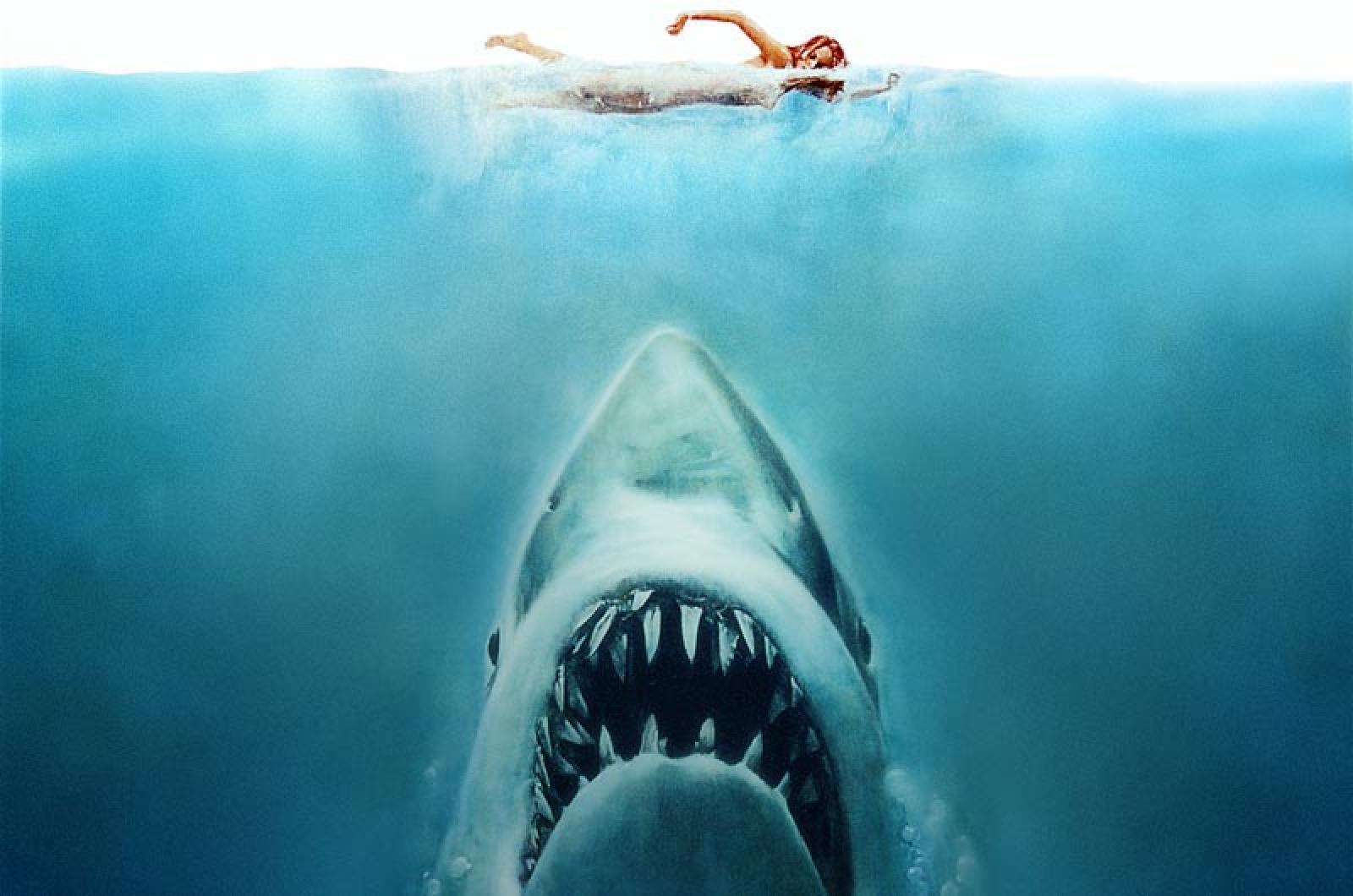Remember, the odds are very much in your favor.
It has been estimated that the chance of getting attacked and killed by a shark are 1 in 3,748,067. Ted Danson (a local now) made this observation: “Many people continue to think of sharks as man-eating beasts. Sharks are enormously powerful and wild creatures, but you’re more likely to be killed by your kitchen toaster than a shark!”
Though it’s true, National Geographic underwater photographer Brian Skerry laments, “There’s still a lot of people out there that think the only good shark is a dead shark.”
After a sighting of a hammerhead shark on South Beach last week and observations of great white sharks off of Cape Cod feasting on a minke whale carcass, a few beaches were closed to swimming.
So is it safe to go back into the water?
Probably. On average in this country, there are 19 shark attacks, and one human fatality, every two years. And if you are female, your chances of eluding these mighty predators are even better, since 93 per cent of shark attacks worldwide from 1580 to 2010 were on males.
Location can increase your risk. If shark attacks keep you up at night, stay away from New Smyrna Beach, Fla. which is considered the shark attack capital of the world. It has been estimated that anyone swimming there has been within ten feet of a shark.
In Massachusetts, seven shark attacks have occurred since 1830. Seven. Three of these were fatal, and they occurred before 1936. Only two of these attacks were off Cape Cod. So please don’t turn into Chief Brody’s wife just yet.
To put our losses in perspective, consider this: for every human killed by a shark, humans kill two million sharks. We are way more dangerous to them than they are to us. So you would be justified in turning into another Peter Benchley, the Jaws author turned shark conservationist.
After years of declining shark populations, numbers of some species seem to be on the rise. One study in 1980 suggested that white shark populations were down 79 per cent, but the tide is now turning with the resurgence of their favorite foodstuff: grey seals.
Massachusetts waters are home to no less than 13 species of sharks between the months of May through November. We should celebrate that fact, not run in fear from it.
Sharks have both the year-round and seasonal markets covered. The porbeagle shark is the only full-time resident, while other species come from their southern habitats for our nutrient-rich and food-rich waters.
If you must know where the sharks are, be comforted, as there is an app for that. The Atlantic White Shark Conservancy, along with its partners, has created Sharktivity. This app “provides information on White Shark sightings, detections, movements and research to raise awareness and help people and White Sharks co-exist peacefully.”
Worrying about shark attacks is not the best way to spend your vacation or your day off. As Bill Gates once said, a smaller pest might be of more concern: “Considering their impact, you might expect mosquitoes to get more attention than they do. Sharks kill fewer than a dozen people every year, and in the U.S. they get a week dedicated to them on TV every year.”
He knows what he’s talking about.
Perhaps we should treat sharks as we do other Vineyard celebrities. Give them their space and respect their privacy. Remember we are guests in their world. Again, in the words of Peter Benchley: “We provoke a shark every time we enter the water where sharks happen to be, for we forget: The ocean is not our territory, it’s theirs.”
Suzan Bellincampi is director of the Felix Neck Wildlife Sanctuary in Edgartown, and author of Martha’s Vineyard: A Field Guide to Island Nature.






Comments (2)
Comments
Comment policy »